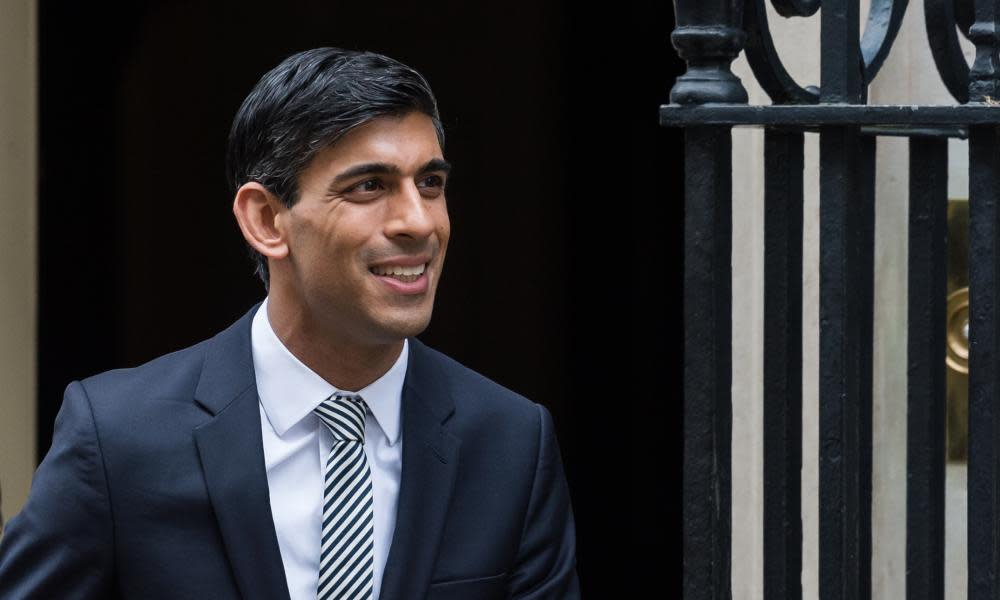Smaller than expected January surplus will be blow to new chancellor

Britain’s public finances recorded a smaller than expected surplus in January in a blow to the new chancellor, Rishi Sunak, who is expected to announce a substantial rise in government spending in next month’s budget.
In the latest sign of a worsening in government finances as the UK economy falters, the Office for National Statistics said tax revenue outstripped spending by about £9.8bn last month, approximately £2.1bn less than in the same month a year ago. City economists had forecasted a £11.3bn surplus.
Sunak is thought to be preparing an expansionary budget, due to be delivered on 11 March, with tax cuts, and spending on transport and other large infrastructure projects to fulfil Boris Johnson’s election promises.
January is typically a month when the government records a surplus in the public finances owing to the timing of self-assessed income tax payments.
Against a backdrop of record employment levels in Britain and rising numbers of self-employed workers, the ONS said the value of self-assessed income tax receipts rose by £1.5bn last month to £16.2bn, a record high for January.
However, central government expenditure rose sharply last month by about 3.6% as spending on education, defence, health and social care was increased to meet a pledge made by Theresa May, when she was prime minister, to turn the page on austerity.
The Office for Budget Responsibility (OBR) warned immediately after the general election in December that the government’s budget deficit would balloon to £47.6bn this year, about £18bn higher than previously expected.
Economists said the government could miss the revised target by about £3.5bn because of lower levels of borrowing in previous months. However, they warned that the OBR would probably downgrade its forecasts for economic growth and the strength of the public finances.
Alison Ring, the public sector director at the Institute of Chartered Accountants in England and Wales, said: “With headwinds from a weak economy and trade uncertainty, the immediate challenge for the chancellor in his budget next month will be to balance the adoption of credible fiscal rules with investing more into public services and building infrastructure outside London and the south-east.”
Despite the decline in the public finances, a closely watched business survey published on Friday suggested the UK economy could be at a turning point after weaker levels of growth towards the end of last year.
According to IHS Markit and the Chartered Institute of Procurement and Supply, growth in manufacturing output accelerated to the strongest level in 10 months, offsetting a slight loss of momentum in the service sector.
February’s IHS Markit/Cips “flash” purchasing managers index, which provides a snapshot of business activity and growth in the UK economy from surveys of companies, was unchanged from a month earlier at 53.3. A reading above 50.0 indicates growth.
The PMI had risen sharply in January, suggesting rising business optimism since Johnson’s election victory lifted some of the uncertainty hanging over the UK economy.
Tim Moore, an associate director at IHS Markit, said the snapshot suggested GDP would grow by about 0.2% in the first quarter of 2020. “[The PMI] provides a clear indication that the UK economy is no longer flat on its back,” he said.

